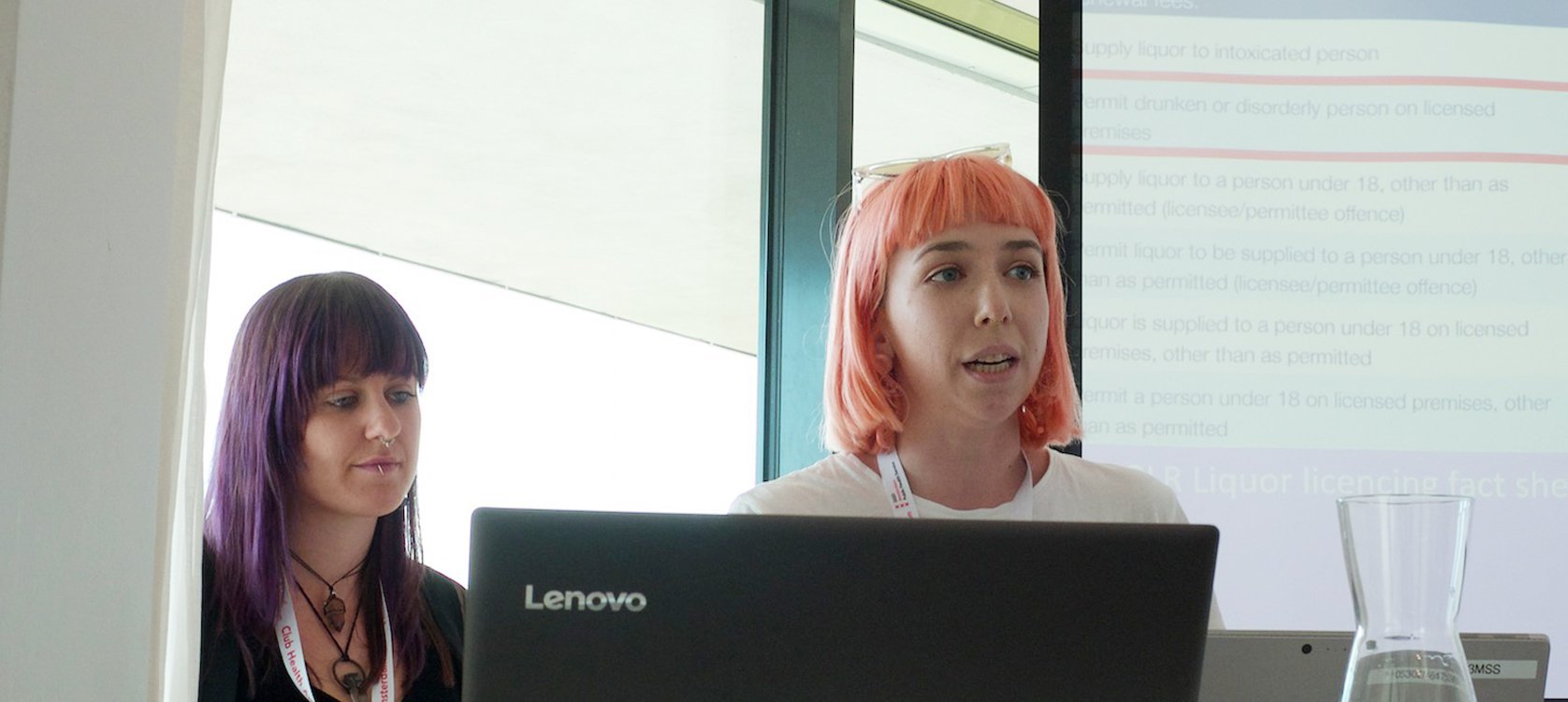PARTi in Amsterdam

24 Jul 2019
In early May, Kate Pern and Gaia Miller-Foote from Thorne Harbour Health and Star Health’s joint harm reduction initiative, the PARTi Project, had the exciting opportunity to travel to Amsterdam to present at the 11th International Club Health Conference on nightlife, substance use and related health issues.
The conference included presentations from over 300 experts from 25 countries and explored the range of challenges and opportunities for promoting health in nightlife settings. Kate and Gaia presented learnings from the PARTi Project in a parallel session titled ‘Safer Nightlife Warriors’, alongside a range of other inspiring peer-led harm reduction initiatives from around the globe. In their presentation, Kate and Gaia explored topics such as the paradox of being part of a government funded peer-led project in a climate of prohibition as well as emphasized the importance of policy reform around liquor licensing and security guard training requirements to create sustainable change and a safer nightlife culture in Melbourne’s late night venues.
Overarching themes from the range of presentations at the conference included discussions around drug checking, effective management of nighttime economies, alcohol and other drugs in nightlife, utilising digital marketing for health promotion, sexual assault prevention and the social benefits of nightlife and partying. For many, it was refreshing to be in an environment where these benefits were universally acknowledged, and did not need to be explained. As well as discussing how to reduce harms associated with nightlife, threats to nightlife itself were also explored, such as Netflix, Uber Eats and dating apps.
How do we stack up?
Gaia and Kate were proud to see that the work they were doing, and the many programs at Thorne Harbour Health, were commensurable with others on an international stage. It became clear, however, that Australia is falling far behind on legislation regarding drug harm reduction and data protection. For example, while drug checking (pill testing) is still a highly contentious issue in Australia, a number of the European delegates expressed their surprise at the fact that the need for drug checking was even still being discussed.
The collection of personal data for the purposes of health promotion was discussed with enthusiasm by some of the European delegates yet was met with concern by many of the Australians. This difference in opinion is likely due to Europe’s strong data protection laws (the GDPR) and Australia’s lack thereof. This begs the question: As the opportunity to utilize data and technology to improve health public health increases, how to we ensure the protection vulnerable communities’ privacy?
Kate and Gaia drew much inspiration from a number of progressive initiatives found in Amsterdam. For example, Amsterdam has a drug checking program that has been running for 27 years. The program provides accessible and affordable drug checking at a number of designated health centres within the city, which any adult member of the public is able to attend. Like a number of other large cities, Amsterdam also has a ‘Night Mayor’ who is responsible for liaising between groups with different vested interests in nightlife, including the City Council, local residents, and party goers. Such initiatives could have amazing potential if implemented in an Australian context.
In other news
29 Aug 2024
International Overdose Awareness Day: What You Should Know
On August 31, we observe International Overdose Awareness Day – the largest annual campaign to end overdose, remember without stigma those who have died, and hold space for the grief of family and friends left behind.
09 May 2022
A New Face Behind Therapeutic Services
We recently welcomed Alyssha Fooks to Thorne Harbour Health as the Manager of Therapeutic Services and Capacity Building. With a portfolio that includes family violence, counselling, alcohol and other drug use, and building the capacity of mainstream services – Alyssha took a moment to talk about her work and coming to Thorne Harbour.